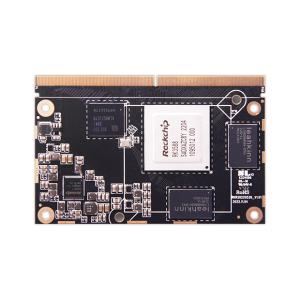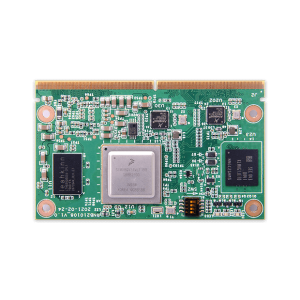Why System on Module (SoM) is the Future of Compact Computing Solutions
Why System on Module (SoM) is the Future of Compact Computing Solutions
Blog Article
Edge computing has appeared as a revolutionary tendency in the tech market, allowing faster knowledge control and paid off latency by providing computational energy nearer to where information is created. A key advancement encouraging this transformation could be the rise of system on module which are small, successful, and versatile computing products made to combine effortlessly in to tailored hardware systems.

The Position of Computer on Adventures in Side Processing
Pc on Segments have become vital in edge research due to their ability to improve electronics style while maintaining strong handling capabilities. In accordance with a recent record by MarketsandMarkets, the international edge computing market is projected to develop from $40.84 million in 2021 to $132.11 billion by 2026, with COMs enjoying a substantial role in that expansion.
These adventures are especially impactful in industries requesting real-time data evaluation at the edge. For example, the transportation business employs COMs in autonomous cars for real-time decision-making, while wise cities deploy them to control systems like traffic movement and power distribution.
Lightweight and Flexible Design
Among the standout characteristics of Pc on Adventures is their small and modular design. This permits designers to combine high-performance research energy into side units without the necessity for extensive equipment redesign. A study by IoT Analytics found that 68% of companies utilizing IoT alternatives contemplate modular equipment like COMs essential for rapid deployment and scalability.
COMs also support tailor-made configurations, creating them ideal for a wide range of purposes, from commercial automation to healthcare. Their capability to conform to unique needs is really a driving power behind their usage in edge research systems.
Power Performance and Efficiency
Side computing devices usually perform in situations with restricted power resources. COMs address that problem by providing optimized power performance without limiting on computational strength. A study by Allied Market Study highlighted that energy-efficient edge processing options are anticipated to dominate the market through 2030, positioning COMs as a critical aspect for reaching this goal.
Moreover, with developments in processors and incorporated artwork, COMs now deliver the performance needed for AI-driven programs at the edge. This not just enhances real-time abilities but additionally decreases dependence on centralized cloud systems.
Why the Potential Goes to COMs
With international knowledge generation projected to achieve 175 zettabytes by 2025, side research is placed to be integral than ever. Computer on Adventures offer an adaptable, energy-efficient, and scalable option for processing this influx of data. Their relevance across diverse areas like healthcare, manufacturing, and telecommunications only underscores their vital role in surrounding the ongoing future of edge computing.
COMs are no more just a technological tendency; they're the backbone of next-generation edge programs operating invention and effectiveness over the globe. Whilst the need for side research is growing, so may the value and impact of COMs in this quickly developing landscape. So, it's safe to say that Computer on Adventures are here to keep and will continue shaping the continuing future of side computing.

Conclusion
Side research is transforming the way we process and employ knowledge, with Computer on Modules at the lead of the revolution. Their compact style, versatility, power performance, and efficiency cause them to become a great alternative for running real-time knowledge at the edge. As industries significantly depend on edge computing due to their operations, COMs may play a crucial position in driving advancement and efficiency in these systems. Report this page